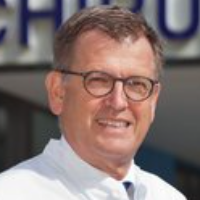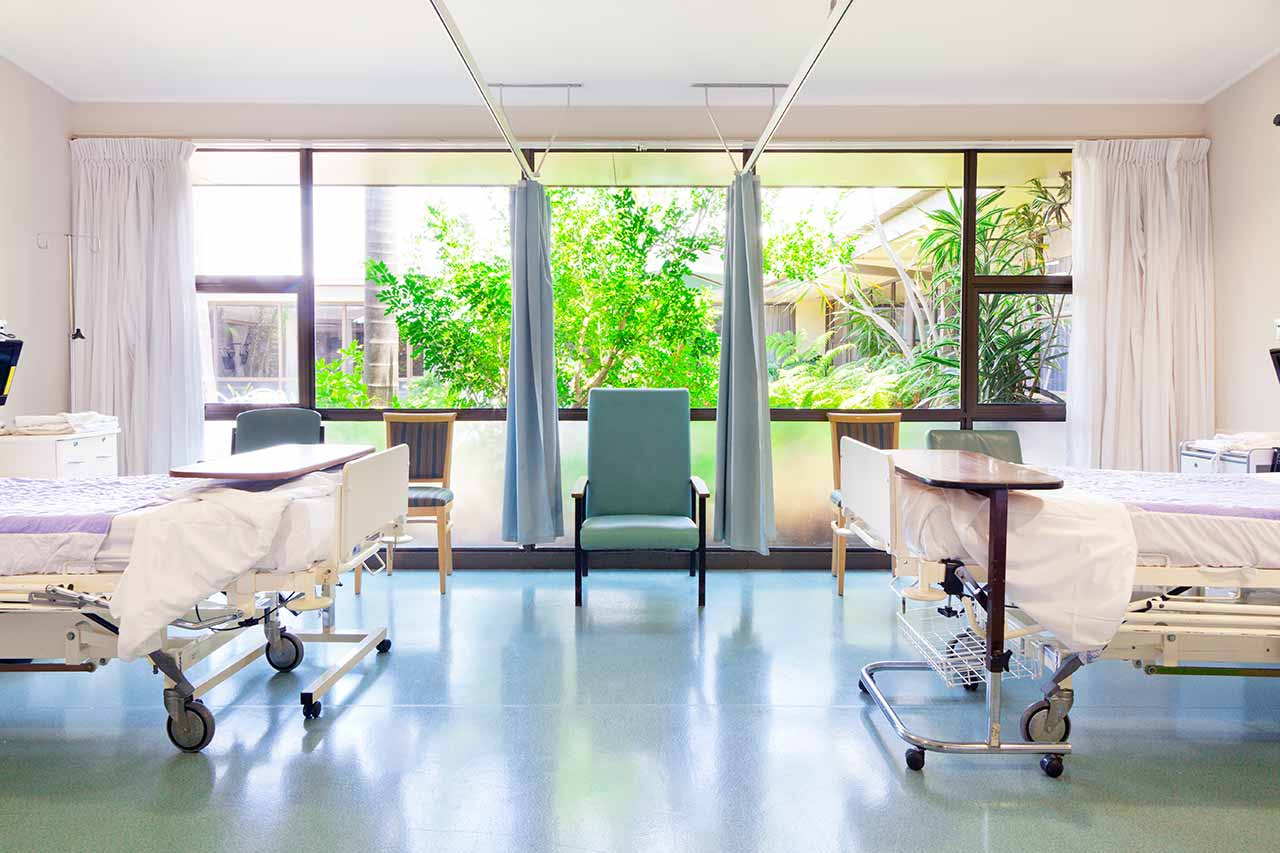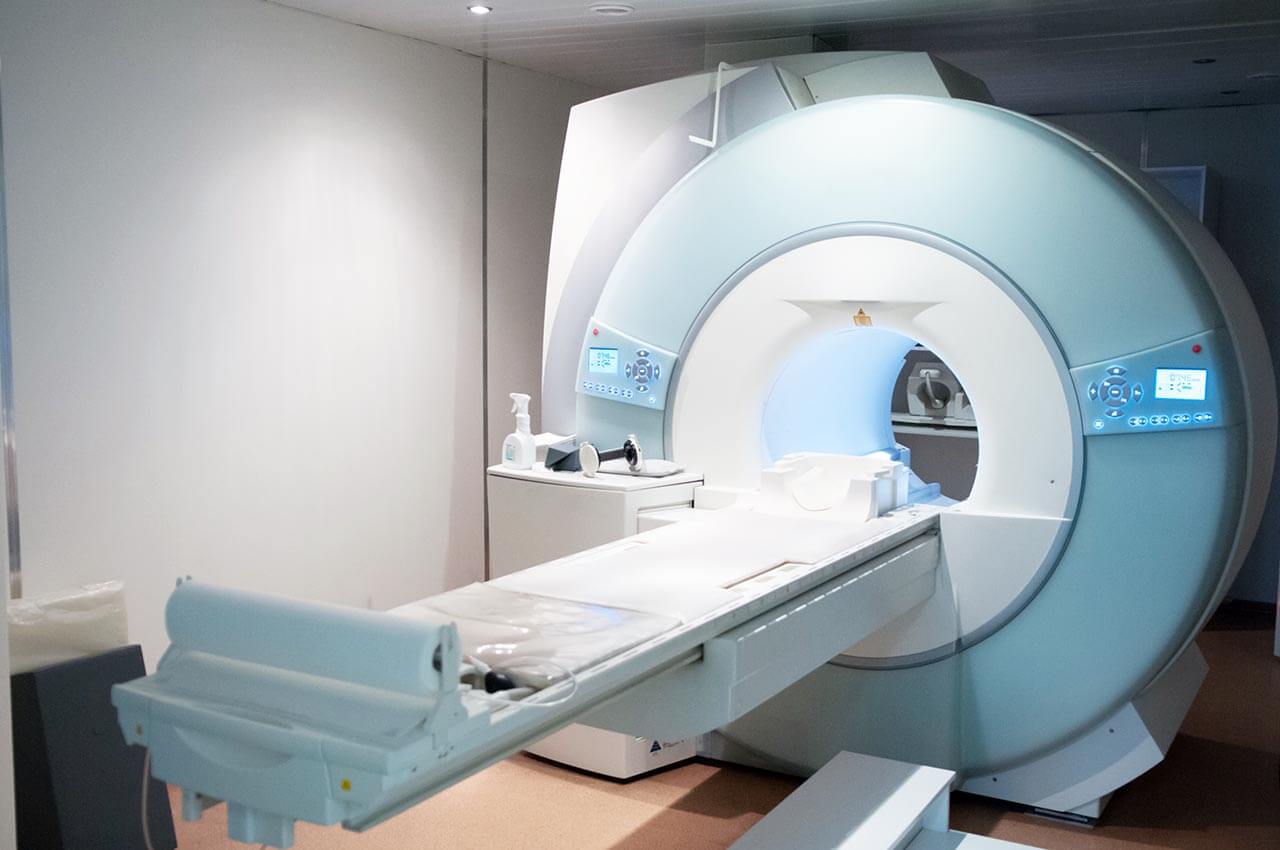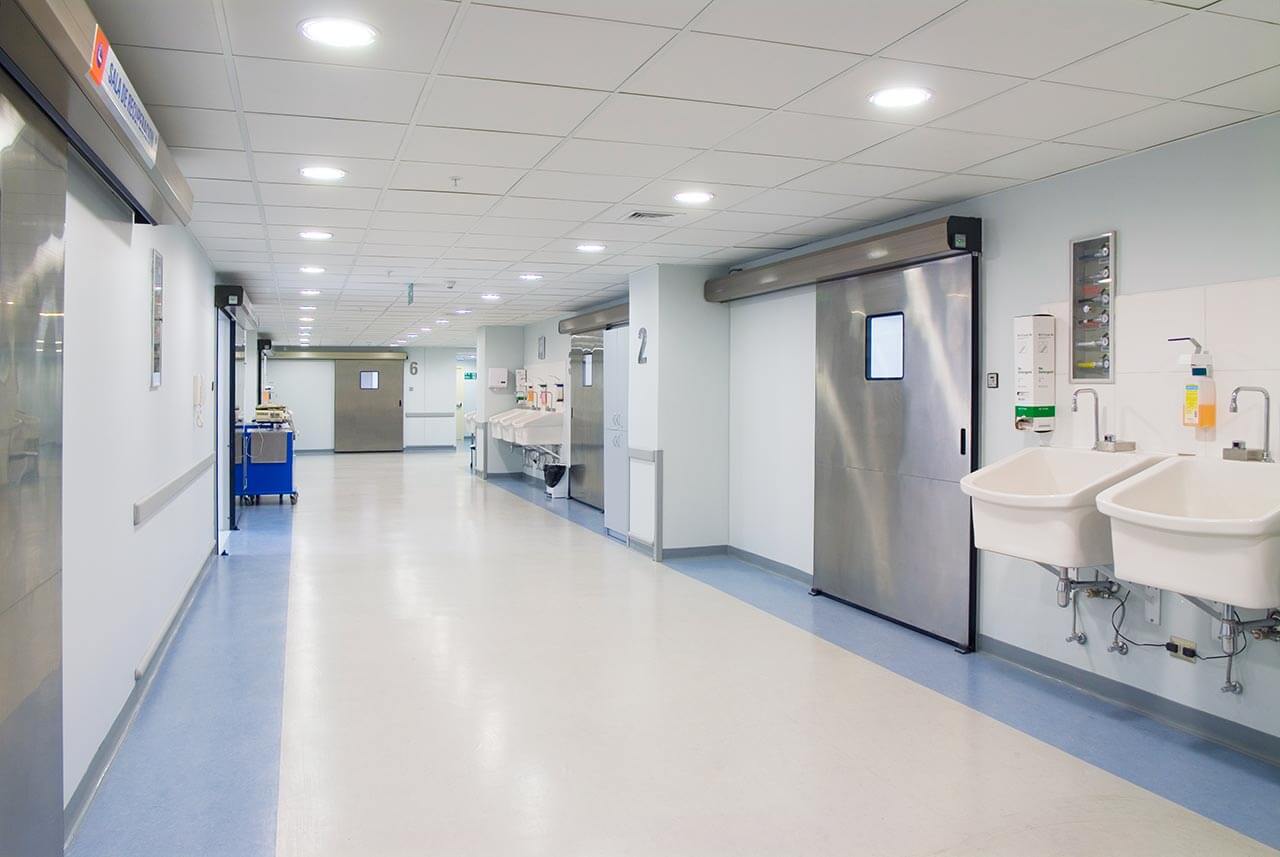
The program includes:
- Initial presentation in the clinic
- history taking
- general clinical examination
- X-ray/ MRT
- neurological examination
- electromyography
- electrophysiology
- general blood analysis
- preparation of pre-operational standard
- symptomatic therapy
- full board clinic stay
- the cost of required medications
- nursing staff services
- elaboration of further recommendations
Required documents
- Medical records
Service
You may also book:
 BookingHealth Price from:
BookingHealth Price from:
About the department
The Department of Adult and Pediatric Traumatology, Hand Surgery at the University Hospital Saarland Homburg offers the full range of medical services in the areas of its specialization. The department diagnoses and treats adults and young patients with musculoskeletal injuries of any severity and polytrauma. The doctors at the medical facility also provide high-quality medical care to patients with complications from injuries. The department is deservedly proud of its success in treating hand injuries and diseases. More than 1,500 hand surgical procedures are performed here annually on an outpatient and inpatient basis. The department's doctors cooperate closely with orthopedists, surgeons, radiologists, and other specialists to provide patients with effective treatment results, taking into account their individual needs and wishes. The department is certified as a supraregional Trauma Center by the German Trauma Society (DGU) and has a quality certificate from the German Society for Orthopaedics and Trauma Surgery (DGOU). The department is headed by Prof. Dr. med. Tim Pohlemann.
The department's traumatologists often treat pelvic ring and acetabular fractures or a combination of these injuries. Since 2001, more than 820 patients with such injuries have been treated in the department, which is about 80-100 cases per year. Depending on the severity of the injuries sustained, the doctors at the medical facility provide both conservative and surgical treatment, giving preference to conservative therapy whenever possible. For patients with acetabular fractures, skeletal traction is primarily considered. If the injury is severe and bone fragments are found in the joint cavity, it is almost impossible to achieve a good result without surgery. Patients with pelvic ring fractures require bed rest, nonsteroidal anti-inflammatory drugs, pain management, and physiotherapy. However, complex pelvic ring fractures are often treated using surgical techniques.
Doctors have impressive experience in providing medical care for patients with spinal injuries: cervical spine fractures, injuries of the disc and ligamentous complex combined with cervical, thoracic and lumbar spine fractures, vertebral fractures due to osteoporosis and cancers, the formation of false joints and deformities after vertebral fractures. Neurosurgeons and orthopedists can be involved in the therapeutic process whenever required. During the treatment, both conservative and modern surgical techniques are used. If a patient needs an operation, the department's traumatologists strive to perform it using low-traumatic techniques. In addition, the very latest navigation systems are used during spinal interventions to ensure the high safety of surgical procedures.
A special place in clinical practice is given to the treatment of large joint injuries, such as knee, hip, shoulder, and elbow injuries. Such patients are treated in cooperation with orthopedists. Uncomplicated joint fractures can often be treated with plaster casts followed by rehabilitation measures to restore mobility. In the case of severe injuries, arthroplasty (joint replacement surgery) may be required. Such surgical procedures are performed using minimally invasive techniques, which greatly facilitate and accelerate the postoperative recovery of patients.
In the field of hand surgery, the department offers all treatment options available in modern medicine. Every year, more than 2,000 patients are treated here, and about 1,500 surgical interventions are performed. Particular attention is paid to the treatment of acute injuries and congenital and acquired hand diseases. The department's doctors are also competent in microsurgical reconstructive interventions on the hand after previous injuries and operations.
The department's main clinical activities are as follows:
- Emergency medical care for any type of injury
- Treatment of seriously injured patients and patients with polytrauma
- Treatment of pelvic ring and acetabular fractures
- Conservative treatment
- Surgical treatment
- Treatment of spinal injuries in adults and children
- Conservative treatment
- Surgical treatment
- Occipitocervical fusion
- Second cervical vertebra odontoid screw osteosynthesis (according to the Böhler method)
- Transarticular screw osteosynthesis for C1 and C2 vertebrae
- Ventral fusion and osteosynthesis with plates of the cervical spine with or without decompression
- Dorsal stabilization of the cervical spine with or without decompression
- Dorsal stabilization of the thoracic/lumbosacral spine with or without posterolateral fusion
- Revision interventions on the spinal canal for decompression: laminoplasty, hemilaminectomy, or laminectomy
- Ventral stabilization of the thoracic/lumbar spine through a minimally invasive or endoscopic approach using angled screws
- Endoscopic or minimally invasive posterior resection with dural compression
- Cement fixation to stabilize the spine with a decrease in bone mineral density (due to osteopenia or osteoporosis)
- Balloon kyphoplasty
- Soft tissue plastic surgery (tissue defect transposition or closure with flaps)
- Plastic surgery for a cerebrospinal fluid leakage due to injuries
- Treatment of large joint fractures, such as knee, hip, shoulder and elbow fractures
- Conservative treatment
- Joint replacement surgery
- Treatment of hand injuries and diseases
- Conservative therapy
- Microsurgical interventions
- Other medical services
Curriculum vitae
Higher Education and Professional Career
- Medical studies at the Ruprecht Karls University of Heidelberg, Faculty of Clinical Medicine, Internship in the Central District Hospital Ludwigsburg.
- 1983 Admission to medical practice and thesis defense with honors: Subject: "Inhibitors of aldose reductase and gluconeogenesis in rats with diabetes mellitus in a chronic study".
- April 1982 ECFMG American Exam.
- 1983 - 1989 Further training in surgery, Department of Surgery, Hannover Medical School; rotation, Braunschweig Hospital.
- 1989 Board certification in Surgery.
- 1992 Senior Physician in the Department of Traumatology at the Hannover Medical School.
- 1992 Specialization in Traumatology.
- 1992 Habilitation, Traumatology.
- 1997 Extraordinary Professorship.
- Since 2001 C4 Professor and Head of the Department of Adult and Pediatric Traumatology, Hand Surgery, University Hospital Saarland Homburg.
Internships Abroad and Awards
- 1999 Video Award from the German Trauma Society (DGU).
- 2004 Honorary Member of the Argentine Association of Orthopedic Trauma (AATO).
- 2005 Corresponding Member of the Austrian Society for Trauma Surgery.
- 2009 Distinguished Guest Lecturer, Annual Scientific Congress, Royal Australasian College of Surgeons, Brisbane.
- 2013 Müller Osten Prize, 130th Congress of Surgery, Munich.
- 2013 Honorary Member of the Royal College Of Orthopedic Surgeons Of Thailand (RCOST).
- 2013 Visiting Professor, St. Louis University, Department of Orthopedic Surgery, St. Louis University School of Medicine.
- 2016 Honorary Member of the Hungarian Trauma Society.
Memberships (selected)
- 2011 President of the German Society of Traumatology (DGU) and President of the German Society of Orthopedics and Traumatology (DGOU).
- Member of the German Society of Traumatology (DGU).
- Member of the German Society of Orthopedics and Traumatology (DGOU).
- Member of the German Society of Orthopedics and Orthopedic Surgery (DGOOC).
- Member of the German Society of Surgery (DGCH).
- Member of the Professional Association of German Surgeons (BDC).
- Member of the Professional Association of Orthopedicians and Trauma Surgeons (BVOU).
- Member of the Association of Surgeons in Saarland.
- Chairman of the Study Group for the Research of Pelvic Pathologies and a Member of the Council of the AO Fund ("Trustee").
- Head of the Working Group on Pelvic Diseases II of the German Society of Traumatology (a multicenter study that included 26 hospitals).
Photo of the doctor: (c) Universitätsklinikum des Saarlandes
About hospital
The University Hospital Saarland Homburg is the largest hospital in the city of Homburg and the most important medical facility in the region. The hospital, which currently has 30 specialized departments and 20 institutes, was founded in 1947 and operates on the basis of Saarland University. The hospital plays a leading role in medical education, research, and medical care both in the state of Saarland and throughout Germany. With vast experience in serving foreign patients, the medical facility is also widely known in the international medical arena.
The pride of the hospital is state-of-the-art equipment that allows the doctors to perform high-precision comprehensive diagnostics and the most sparing treatment even if a patient has a severe pathology. Patients are offered innovative medicine based on the very latest scientific achievements. At the same time, the hospital offers many therapeutic methods that are used only in leading medical centers in Europe, including da Vinci robot-assisted surgery, CAR T-cell therapy, TAVI and MitraClip catheter-based procedures, innovative laser procedures, etc. Great importance is paid to ethical and social competence. The hospital is constantly improving the work of its medical personnel and infrastructure to provide medical services that meet the highest standards.
As a multidisciplinary medical complex, the hospital offers highly effective treatment of the full range of common diseases as well as rare and severe pathologies. The efforts of the medical staff, which includes over 600 doctors and 2,000 nurses, are focused on the patient and their unique needs and desires. The doctors always devote enough time to personal communication with their patients, provide them with moral support, and are sympathetic to every life situation.
Photo: (с) depositphotos
Accommodation in hospital
Patients rooms
The patients of the University Hospital Saarland Homburg live in comfortable single, double, and triple patient rooms with a modern design. Each room is equipped with an ensuite bathroom with a shower and a toilet, as well as everything else necessary: a comfortable bed, a bedside table, a TV, and a telephone. In addition, enhanced-comfort rooms and specially equipped rooms for people with disabilities are available for the patients.
Meals and Menus
The hospital offers healthy and delicious meals three times a day: buffet breakfast, dinner with a wide choice of dishes for every taste, and a light supper. The menu features dietary and vegetarian dishes. There is also a cafeteria on the territory where one can taste delicious dishes and have a cup of coffee, tea, or some refreshing drinks
Further details
The standard patient rooms include:
Religion
The hospital regularly hosts catholic and evangelical devine services. The services of representatives of other religions are available upon request.
Accompanying person
During an inpatient program, an accompanying person can stay with you in the patient room or in a hotel of your choice.
Hotel
During an outpatient program, you can stay in a hotel of your choice. The managers will help you choose the most suitable options.





